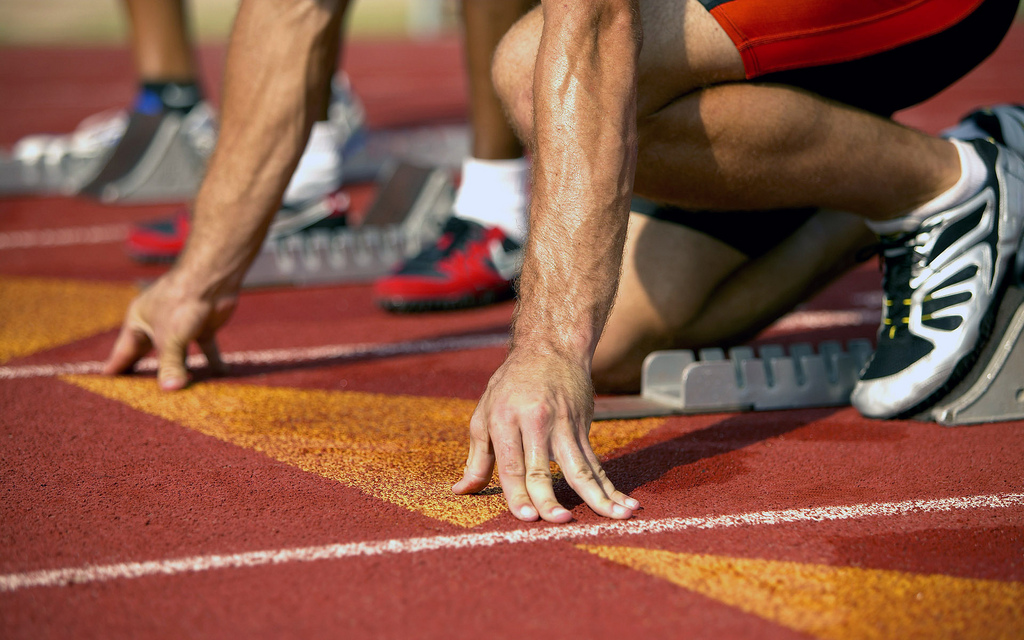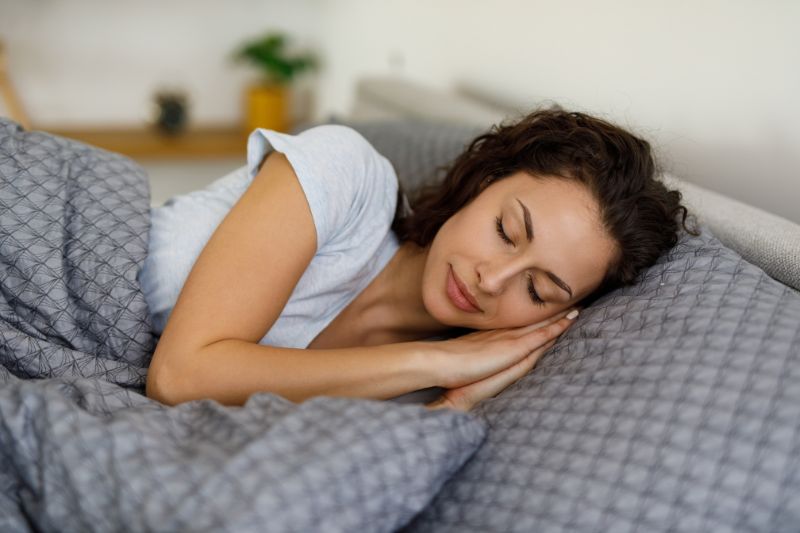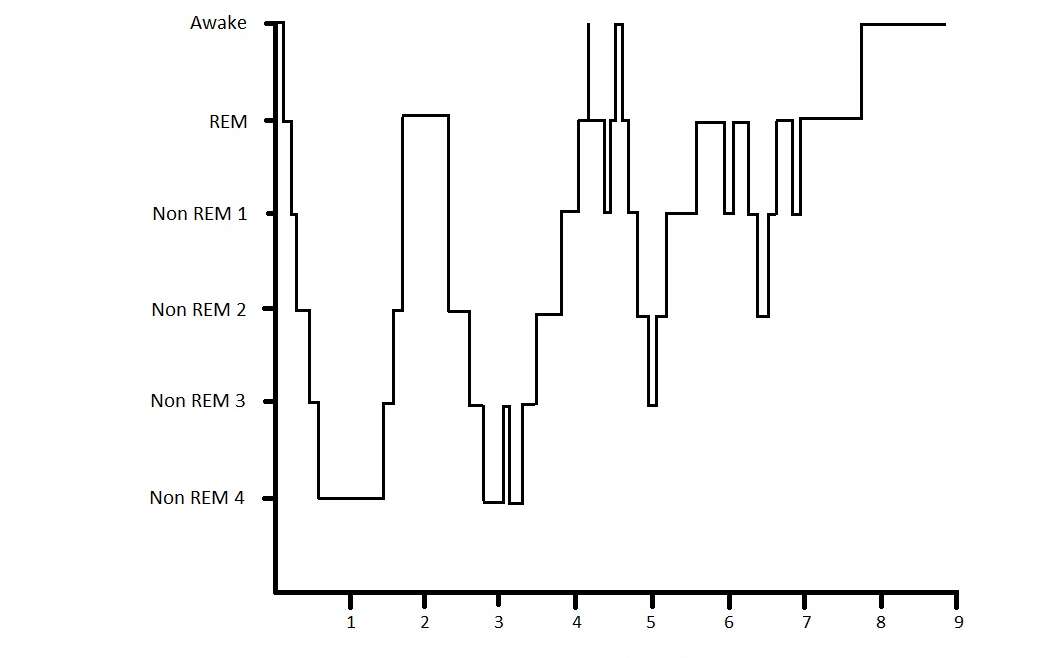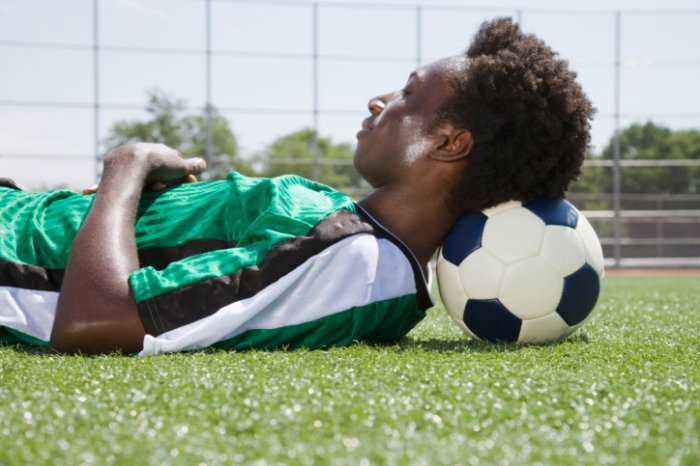Sleep is a critical component of many biological functions. It serves to help regulate your mood, immune system, growth and adaption to exercise, and even how much you eat. When an individual is training at a high level, the importance of sleep increases significantly. This article will look at some of the research on the relationship between sleep and elements of athletic performance.
Sleep 101
Venter (2012) defines sleep as a special activity of the brain, controlled by elaborate and precise mechanisms. It is not simply just a state of rest but something that has its own specific, positive functions. Davenne (2009) states “athletes should be aware of the fact that, although sleep is a state of diminished consciousness and slower bodily functions, it plays a key role in the rest-activity cycle with very specific functions occurring during quality sleep”.
There are two main stages of sleep, Non-Rapid Eye Movement (NREM) and Rapid Eye Movement (REM) sleep. NREM sleep consists of four stages, stage one being the lightest sleep and Stage four being the deepest. After stages one-four of NREM sleep, REM sleep begins. In the REM sleep stage, the eyes move rapidly or twitch under the eyelids and heart rate, body temperature, respiration and blood flow increase. The body cycles between NREM and REM sleep throughout the night. A full cycle of NREM and REM sleep last about 90 minutes.
 Exercise Performance
Exercise Performance
A review article by Fullagar et al. (2015) had an extensive look at how sleep affects performance. One would assume that sleep restriction would be detrimental to exercise performance, but the evidence is conflicting. The authors looked at many studies that examined both sleep deprivation and sleep restriction and found that some results indicated a clear drop in performance, whilst others did not. I would say that athletes can get away with one bad night sleep and still perform well (this is common before a key event), but consecutive sub-optimal sleeps will most likely have a significant effect on athletic performance and recovery.

Related: 5 ways to get a better night sleep
1.Muscle Recovery
The body is in a constant state of breakdown and repair. The repair process peaks during sleep time; particularly during stages three and four of NREM sleep. Growth and repair happens at this time due to the high release of growth and sex hormones. Over 95 per cent of the daily amounts of these hormones are released during this time. If an athlete has a short or interrupted sleep, they are not fully tapping in to their natural recovery process. Proper sleep has also been shown to be important in the process of physical skill acquisition (Venter, 2012).
2.Injury Risk
Poor sleep can indirectly affect athletic performance by increasing the risk of injury. A study by Milewski et al. (2014) reviewed the injury records of 160 high school students and found that students who slept less than eight hours per night were at a 1.7 times higher chance of sustaining an injury than those who slept more than eight hours. This could be due to some of the hormonal changes during sleep discussed earlier.
3.Cognitive Function and Memory
We all know what it feels like to get to work or school after a bad night sleep. You find it hard to concentrate and take to in new knowledge, and just feel generally average. When we think about recovery, don’t just think about muscle recovery. The brain, and the entire nervous system, is the most complex system in the body and needs to recover, grow and consolidate just like any other body system. Sleep is critical in consolidating memory, improving judgment, promoting learning, optimum concentration, speed of reaction time, problem solving and accuracy (Venter, 2012). Many studies have shown that sleep-deprived athletes will perform worse in cognitive function and memory testing (Fullagar et al. 2015). We can see how many of these cognitive variables are needed for optimal sports performance and that sleep is just has important for mental recovery as it is for physical.
4.Mood
As with memory and concentration, mood can be grossly affected by sleep. We’ve all been guilty of being a little grumpy after a poor night’s sleep. Sleep deprivation has been reported to result in a higher incidence of negative mood (Fullagar et al., 2015). It has also been shown to increase someone’s risk of depression, anxiety, substance abuse problems and suicide (Venter, 2012). The negative mood effects of sleep deprivation will clearly effect an athletes motivation and decision making, and will also have flow-on physical affects like decreased pain tolerance (Halson, 2014) and increased injury risk (Milewski et al., 2014).
5.Immune System
Another thing I’m sure you’ve experienced is getting run down and sick after a period of poor sleep. It is thought that the recovery hormones released at night are also important in enhancing the effects of the immune system (Venter, 2012). It is known that poor sleep, especially over consecutive nights, increases an athlete’s susceptibility to infection (Halson, 2014). It is also thought that even missing out on small amount of sleep can have a cumulative affect on the athlete’s immune system (Venter, 2012). Interestingly though, a nap during the day after a night of poor sleep can decrease the negative effect of reduced sleep on the immune system. (Halson, 2014). I often see athletes who are very motivated; this has the flipside of them being paranoid about missing a training session. If they are coming off the back of a heavy training load and a bad nights sleep, I typically advise them to just skip the session that morning, its just not worth the risk of getting sick (and missing multiple sessions).
Key Points
1. Sleep is critical for optimal athletic performance
2. Sleep status quality can affect recovery, mood, injury risk, cognitive function and your risk of illness
3. Respect your body’s need for sleep and it will thank you.
About the Author:
Dr. Nicholas Tripodi is a Co-director and Osteopath at the Competitive Sports Clinic located in the Essendon District. Nicholas has particular interests in sports injuries, exercise rehabilitation and running and cycling analysis.
References
Davenne, D. (2009). Sleep of athletes–problems and possible solutions. Biological Rhythm Research, 40(1), 45-52.
Fullagar, H. H., Skorski, S., Duffield, R., Hammes, D., Coutts, A. J., & Meyer, T. (2015). Sleep and athletic performance: the effects of sleep loss on exercise performance, and physiological and cognitive responses to exercise. Sports Medicine, 45(2), 161-186.
Halson, S. L. (2014). Sleep in elite athletes and nutritional interventions to enhance sleep. Sports Medicine, 44(1), 13-23.
Milewski, M. D., Skaggs, D. L., Bishop, G. A., Pace, J. L., Ibrahim, D. A., Wren, T. A., & Barzdukas, A. (2014). Chronic lack of sleep is associated with increased sports injuries in adolescent athletes. Journal of Pediatric Orthopaedics, 34(2), 129-133.
Venter, Rachel E. “Role of sleep in performance and recovery of athletes: a review article.” South African Journal for Research in Sport, Physical Education and Recreation 34.1 (2012): 167-184.


 Exercise Performance
Exercise Performance